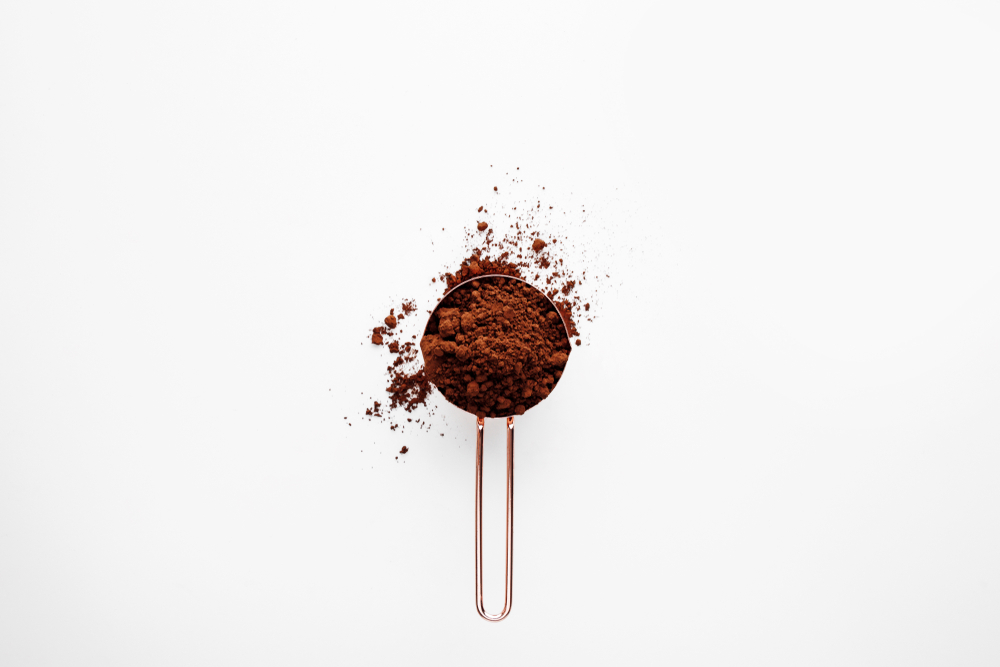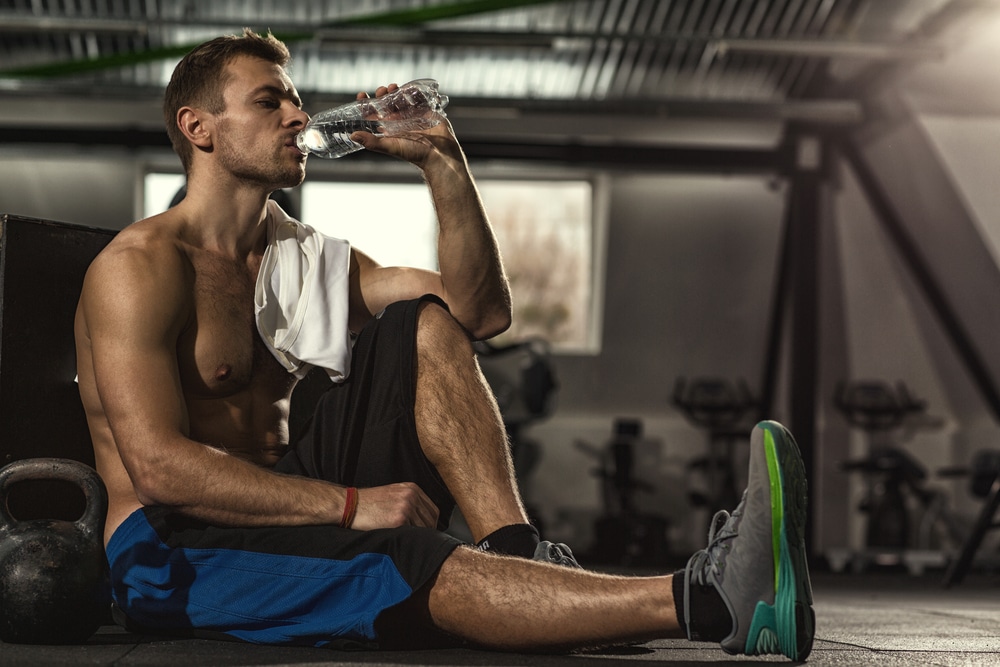
Nutrition For Team Sports
Keen sportsman or sportswoman? TPW Writer Liam Darville explains the importance of nutritional requirements for sports athletes, due to the high physiological demands placed upon them.
Background
Team sports are most often classed as intermittent high intensity exercise activities. Surprisingly, research has shown that ~90% of game time is spent standing, walking or jogging with 10% spent performing explosive high intensity actions. Contrary to common belief that repeated sprint ability is key to quality performance, literature instead suggests that they are very rarely undertaken. Repeated sprints, defined as 3 sprints in 60 seconds, occur as little as once in every 6 games in football (soccer). The essential abilities of team sport athletes are a high aerobic capacity, strength, power output and rate of force development (RFD) i.e. ability to produce force quickly. Athletes are also required to be robust and resistant to injuries. Stress is, therefore, placed upon all of the energy pathways and efficiency is required throughout the range. Of note is that the decisive moments in games are preceded by explosive efforts, often performed in a state of fatigue.
So now we have established the demands, how can we influence these with nutritional manipulation?
Carbohydrate
Carbohydrate (CHO) is required to fuel high intensity (HI) efforts. Literature consistently showing that when compared with fat, CHO elicits significantly greater HI performance. Elevated levels of power output, total work done and a lowered rate of perceived exertion (RPE) all found when CHO is the predominant fuel source. Furthermore when performing HI activities for a duration >60 minutes multiple authors have shown that the major limiting factor of performance is CHO availability. Ensuring adequate CHO availability pre-competition is vital. Team sport athletes have a very heavy workload, often needing to replenish stores whilst still training. A higher intake than may have at first seemed necessary is required. Recommendations for team sport athletes are currently 5-8g.kg per day. There is no benefit to ‘carb loading’ strategies. As with all nutritional intakes every individual is unique and so some experimentation may be required, start at the lower end and adjust as required.
Whilst arguments still abound as to whether fat can adequately fuel HI exercise to the same level as CHO, there is as yet no conclusive evidence. In contrast there are numerous studies highlighting the positive correlation between higher CHO levels and increased HI performance. This is not the case in submaximal exercise e.g. endurance running. Despite this, a minimum intake of 20% fat within the diet is essential for maintenance of body homeostasis and hormonal function and so intake should not be beneath this.
Protein
The high number of eccentric muscle contractions needed to change direction, decelerate and land during the sports cause microtraumas in muscle fibres. Sufficient protein intake stimulates muscle protein synthesis (MPS) activating the mTORC pathway essential for muscle recovery, adaptation and hypertrophy (growth). By repairing this muscle damage and supplying enough protein, adaptation and growth is optimised. Adequate protein intake maximises strength and RFD, key components of the team sport athlete. Stimulating MPS initiates many of the adaptations. The 2 major stimulants of MPS are exercise and protein, particularly the essential Branch Chain Amino Acid (BCAA) Leucine. It is reckoned that 20g bolus protein intakes are sufficient to stimulate MPS, however, new research has claimed that 40g post-exercise may be more beneficial. Team sport athletes are recommended to ingest between 1.6-2.0g.kg of protein per day. Particular attention should be payed to intake around exercise, 60 minutes pre-workout and a 20-40g intake within 30 minutes following exercise thought to be optimal.
Although animal sources, especially whey, are most biologically available and so generally considered ‘best’, there is little to suggest that adaptation cannot be gained through the use of vegetarian proteins. As with many areas in nutrition, an individual approach is needed when it comes to protein source.
Supplementation
Supplements are an aid to a healthy balanced diet, the supplements discussed below all have strong support within literature to back their potential to offer ergogenic aid to performance. They will not offer a ‘solution’ to a poor base diet.
Creatine Monohydrate (CrM)
Explosive efforts are a major contributor to successful performance in team sports. These efforts are fuelled mainly through the Phosphocreatine (PCr) energy pathway. The PCr system is able to produce energy (ATP) faster than any other system, giving the body the ability to perform rapid explosive movements’ e.g. explosive jumps. Repeated explosive efforts with minimal rest swiftly deplete PCr stores, preventing Peak Power Output (PPO) maintenance in subsequent efforts. Research has found that PCr levels are reduced >50% by a single 6s sprint. PCr resynthesis can take ~13 minutes post-exercise and so a manipulation to maximise stores and speed up resynthesis is needed. It is here where supplementation with CrM comes in. By supplementing with CrM studies have found that PCr resynthesis and consequent ATP resyntheis is significantly elevated, this in turn leads to a greater PPO and, perhaps more significantly, a greater PPO repeatability.
Supplementation is usually 3-5g per day. However, those wishing to saturate levels as quickly as possible may wish to undertake a ‘loading’ phase of 4x5g per day for 20 days. Both dosages will lead to saturation of Creatine stores, ‘loading’, though, will achieve saturation much quicker. A side effect of CrM supplementation, particularly with ‘loads’, is weight gain and this must be taken into careful consideration when considering dose (see previous article on Creatine for more information).
Caffeine
Caffeine or 1,3,7-Trimethylxanthine is a stimulant of the central nervous system, a strong correlation seen between caffeine intake and improved aerobic performance. Caffeine is an adenosine antagonist, binding to adenosine receptors caffeine essentially blunts the perception of exertion. Studies have found that RPE is reduced in participants supplementing with caffeine when compared to those not, particularly during endurance intensive efforts. Caffeine is believed to open dopamine channels elevating mental alertness, cognitive function and improving mood. Recent research has linked caffeine with increased PPO, time to exhaustion and motor unit firing frequency, although further research is still required in this area.
Doses are normally 4-6mg.kg 30 minutes pre-exercise. Dosage with caffeine is highly individual and doses as low as 2mg.kg have been shown to be effective so experimentation is recommended. Doses >10mg.kg should never be exceeded (For an in depth look at Caffeine check out the previous article).
Beetroot Juice
The high nitrate content of beetroot juice is believed to play a vital role in enhancing the performance of non-elite athletes. Nitric oxide is a key controller of vasodilation. Increased vasodilation allows an enhanced delivery of oxygen and nutrients to active tissue. A greater delivery linked with an improved aerobic capacity. Similarly, there is believed to be a greater removal of waste products. Beetroot juice may thus improve the ability to generate ATP aerobically. This will limit the accumulation of H+ ions and lactate associated with glycolytic (anaerobic) ATP production, effectively delaying fatigue. Literature has also suggested that beetroot juice may induce greater force production, agreement is not universal though and future research is needed. Dose levels are hotly disputed, but generally a dose delivering 8.2mmol of NO3 is thought to be sufficient.
Take Home Points
· Team sports are ~90% aerobic interspersed with explosive high intensity efforts.
· Carbohydrate is required to fuel high intensity efforts essential to team sport performance. Intake of 5-8g.kg recommended.
· Protein plays a vital part in recovery and adaptation. Intake of 1.6-.2.0g.kg recommended.
· Fat intake should not drop beneath 20% of daily calorie consumption.
· Creatine Monohydrate, Caffeine and Beetroot Juice have ergogenic effects upon team sport performance.
References
Bartlett, JD., Hawley, JA., Morton, JP., 2015. Carbohydrate Availability and Exercise Training Adaptation: Too Much of a Good Thing? European Journal of Sport Science, 15(1), pp 3-12.
Burke, LM., 2008. Caffeine and Sports Performance. Applied Physiology, Nutrition and Metabolism, 33, pp 1319-1334.
Cramer, JT., Stout, JR., Culbertson, JY., Egan, AD., 2007. The Effects of Creatine Supplementation and Three Days of Resistance Training on Muscle Strength, Power Output and Neuromuscular Function. Journal of Strength and Conditioning Research, 21(3), pp 668-677.
Ferrauti, A., Remmert, H., 2003. The Effects of Creatine Supplementation: a Review with Special Regards to Ballgames. European Journal of Sport Science, 3(3), pp 1-27.
Galvan, E., Walker, DK., Simbo, SY., Dalton, R., Levers, K., O’Connor, A., Goodenough, C., Barringer, ND., Greenwood, M., Rasmusson, C., Smith, SB., Ricchman, SE., Fluckey, JD., Murano, PS., Earnest, CP., Kreider, RB., 2016. Acute and Chronic Safety and Efficacy of Dose Dependent Creatine Nitrate Supplementation and Exercise Performance. Journal of the International Society of Sports Nutrition, 13(12), pp 1-24.
Hargreaves, M, Hawley, JA and Jeukendrup, AE (2004) Pre-Exercise Carbohydrate and Fat Ingestion: Effects on Metabolism and Performance. Journal of Sports Sciences, 22, pp. 31-38.
Hawley, JA, Tipton, KD, and Millard-Stafford, ML (2006) Promoting Training Adaptations Through Nutritional Interventions. Journal of Sports Sciences, 24(7), pp 709-721.
Jeukendrup, A. (2014) A Step Towards Personalised Sports Nutrition: Carbohydrate Intake During Exercise. Journal of Sports Medicine, 44(1), pp. 25-33.
Jeukendrup, AE (2008) Carbohydrate Feeding During Exercise. European Journal of Sport Science, 8(2), pp 77-86.
Jeukendrup, AE (2011) Nutrition for Endurance Sports: Marathon, Triatholon and Road Cycling. Journal of Sports Medicine, 29(1), pp. 91-99.
Jones, G., 2008. Caffeine and Other Sympathomimetic Stimulants: Modes of Action and Effects on Sports Performance. Essays in Biochemistry, 44, pp 109-123.
Jones, G., 2008. Caffeine and Other Sympathomimetic Stimulants: Modes of Action and Effects on Sports Performance. Essays in Biochemistry, 44, pp 109-123.
Kiens, B., 2001. Diet and Training in the Week before Competition. Canadian Journal of Applied Physiology, 26, pp 56-63.
Kiens, B., 2001. Diet and Training in the Week before Competition. Canadian Journal of Applied Physiology, 26, pp 56-63.
Leckey, JJ, Burke, LM, Morton, JP and Hawley, JA (2016) Altering Fatty Acid Availability does not Impair Prolonged, Continuous Running to Fatigue: Evidence for Carbohydrate Dependence. Journal of Applied Physiology, 120, pp. 107-113.
Maughan, R., Burke, LM., 2012. Nutrition for Athletes. IOC Nutrition Guidelines, pp 43-47.
Pesta, DH., Samuel, VT., 2014. A High-Protein Diet for Reducing Body Fat: Mechanisms and Possible Caveats. Nutrition and Metabolism, 11(53), pp 1-8.
Phillips, SM., 2012. Dietary Protein Requirements and Adaptive Advantages in Athletes. British Journal of Nutrition, 108(2), pp 158-167.
Rawson, ES., Persky, AM., 2007. Mechanisms of Muscular Adaptations to Creatine Supplementation. International Sports Medicine Journal, 8(2), pp 43-53.
Spriet, LL and Watt, MJ (2003) Regulatory Mechanisms in the Interaction between Carbohydrate and Lipid Oxidation during Exercise. Acta Physiologica Scandinavia, 178, pp. 443-452.
Trexler, ET., Smith-Ryan, AE., 2015. Creatine and Caffeine: Considerations for Concurrent Supplementation. International Journal of Sport Nutrition and Exercise Metabolism, 25, pp 607-623.
Volek, JS, Noakes, T and Phinncy, SD (2015) Rethinking Fat as a Fuel for Endurance Exercise. European Journal of Sport Science, 15(1), pp. 13-20
Watson, G., Casa, DJ., Fiala, KA., Hile, A., Roti, MW., Healey JC., Armstrong, LE., Maresh, MC., 2006. Creatine Use and Exercise Heat Tolerance in Dehydrated Men. Journal of Athletic Training, 41(1), pp 18-29.
Zydek, G., Michalczyk, M., Zajac, A.,Latosik, E., 2014. Low or High Carbohydrate Diet for Athletes? Trends in Sports Sciences, 4(21), pp 207-212







No Comments yet!